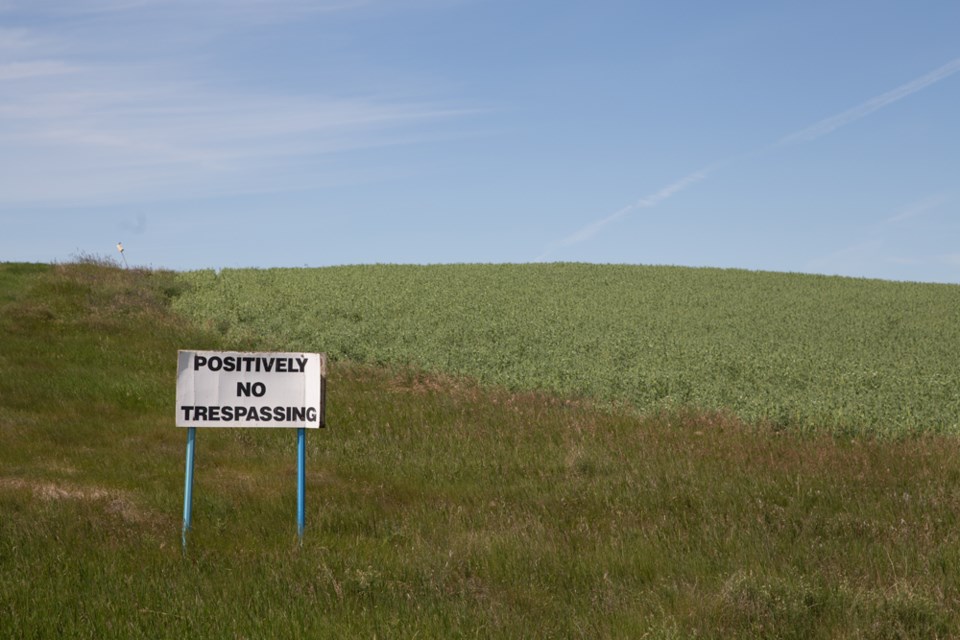SASKATOON — Treaty Commissioner of Saskatchewan Mary Culbertson, J.D., has urged the Saskatchewan government to work with the province’s First Nations communities to ensure the promises set on the Treaty Land Entitlement Framework Agreement are fulfilled.
Culbertson, in a letter sent to Agriculture Minister David Marit, is inquiring about the increased sales of Provincial Lands and the recent implementation of the Trespass to Property Act early this year that limits and breaches obligations stated on the TLE agreement.
She said the Office of the Treaty Commissioner helped negotiate the TLE with the Federation of Indigenous Sovereign Nations, the Province of Saskatchewan and the Federal government of Canada 30 years ago.
That’s why as Saskatchewan’s current Treaty Commissioner she fielded several complaints on the increased dispersal of Crown Lands by the provincial government and mentioned Section 4.06 of the Saskatchewan TLE Framework Agreement, which states the Province of Saskatchewan “agrees to give favourable consideration from Entitlement Bands to purchase federal or provincial Crown Land.”
Culbertson, a member of the Keeseekoose First Nation and the first female Treaty Commissioner, said in her letter that some First Nations communities failed to purchase their shortfall acres allotted under the TLE process.
“They [First Nations] expect the province to honour the TLE agreement by providing advanced notice of Crown land sales and giving First Nations right of first refusal for lands in their traditional territories,” said Culbertson.
“The increasing rate of Crown land sales is also concerning as these place limits on where First Nations peoples can exercise their Treaty rights and the land available for the exercise of those rights and the overall Crown holdings.”
She added that lands that were under the TLE are being sold off from the people of this land to the highest private bidder instead of being protected and shared. That’s why it is her responsibility as Treaty Commissioner to ensure treaty lands are shared.
“As Treaty Commissioner it is my responsibility to ensure that Treaties benefit both Indigenous and non-Indigenous peoples throughout these Treaty territories where the province of Saskatchewan was created after the conclusion of negotiated Treaties that were meant to share the land with newcomers for settlement,” said Culbertson.
She said the TLE agreement helped the Saskatchewan provincial government achieve the first of its seven balanced budgets, starting in 1994, from the over $312 million in investments by the federal government. The money went to landholders in the province that later trickled down into the local economy.
Stop the sale
Culbertson said the Saskatchewan government must work with the province’s entitlement First Nations to make sure they achieve the shortfall acres promised under the TLE and to immediately stop the sale of other Crown lands.
“Stating that the FSIN is given notice is not good enough and does nothing to protect the legal obligations of which the Crowns have undertaken. Fulfillment of TLE is not the only land availability issue behind claims being fulfilled either; there are also the Nations that have Specific Claims being honoured wherein they wish to create reserve status lands within their traditional territory from their compensation,” Culbertson said.
Last year, the Treaty Land Sharing Network and 30 different civil organizations in the province also sent a letter to Marit asking to stop the sale of Crown land in Saskatchewan. The provincial government, since 2007, had already sold close to two million acres of Crown land that was previously owned by the people of Saskatchewan.
Culbertson also said the Trespass to Property Act is another example of the implications for ignoring the Treaty relationship.
"The impacts it can have on Treaty rights are drastic and protection of property does not have paramountcy over Treaty rights nor will it have an impact on property protection when agencies cannot investigate due to lack of resources and interest.”
“I must inform you and your government that these are interpreted as direct breaches of the Treaty and limits the exercise of the rights of not only Treaty rights holders but the citizens in this province. Parties to these Treaties have stated unequivocally they will take these breaches to task and how these acts and legislations affect them,” she said.
She added that the Treaty relationship must be understood and applied to avoid the process of litigation and the senseless spending of dollars and other resources.
“Parties to this agreement have stated they will take this course if these acts and legislation are not ceased.”




